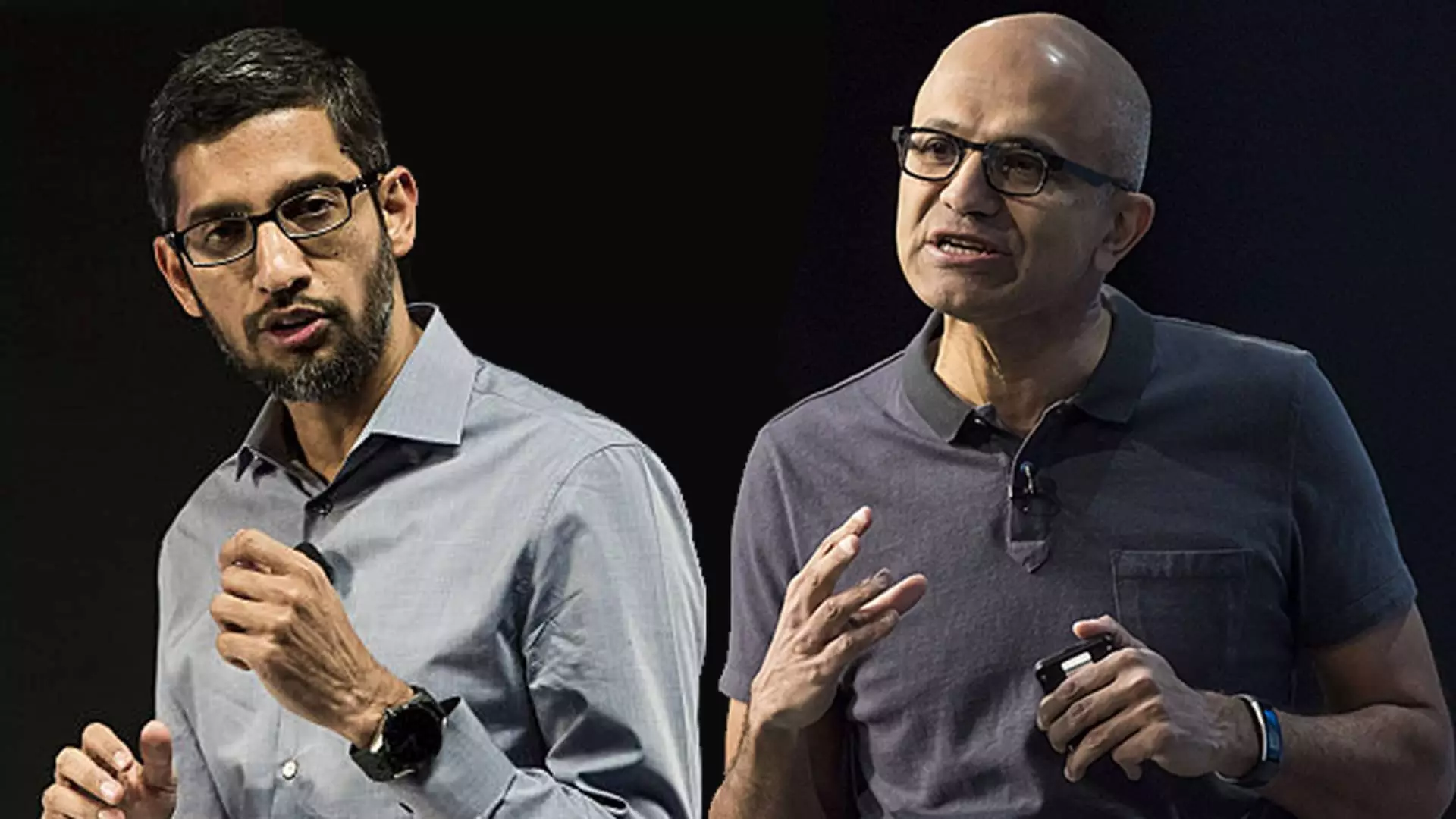In a striking development this week, Microsoft has publicly accused its longstanding rival, Google, of orchestrating clandestine campaigns aimed at undermining Microsoft’s credibility with European regulators. The charge comes from Microsoft lawyer Rima Alaily, who argues in her blog post that Google has engaged a consulting firm to recruit European cloud businesses as a facade to advocate for Google’s interests while disparaging Microsoft. This incident marks another chapter in the ongoing competition between these tech giants, primarily in the realms of cloud services, online advertising, and productivity solutions.
Alaily’s post specifically accuses Google of employing a PAC (Political Action Committee) approach through the establishment of an organization known as the Open Cloud Coalition. She claims that this coalition is set to launch “astroturf” campaigns—a term used to describe activities that appear grassroots but are orchestrated by larger organizations. The intention behind these efforts, according to Microsoft, is to influence policymakers and build a narrative that paints Microsoft in an unfavorable light regarding its business practices in cloud infrastructure.
Both Microsoft and Google are deepening their entrenched positions in the highly competitive cloud infrastructure landscape, where leaders like Amazon Web Services (AWS) also vie for market share. Google is currently facing increasing scrutiny from regulators in Europe and the United States, notably including a series of antitrust lawsuits. As these legal challenges mount, companies are positioning themselves to maintain competitive advantages while defending against attacks, both legal and reputational.
Alaily’s blog emphasizes that Google engaged the DGA Group, an advisory firm, to facilitate this coalition. The overarching aim appears to be to rally European cloud providers to publicly denounce Microsoft and to present a united front that argues for what they define as fair competition. Intriguingly, one company reportedly declined to join this coalition after alleging that it was primarily funded by Google and designed to target Microsoft’s established practices in the region.
The crux of Microsoft’s criticism is focused on what they perceive as Google’s elaborate efforts to hide its involvement and funding in these organized campaigns. Alaily mentions that the public face of the coalition comprises select European cloud providers, creating the impression of a grassroots initiative rather than a corporate-backed campaign. This strategy of misdirection is not uncommon in tech rivalries, where public perception can significantly influence market behavior and regulatory actions.
Google’s response to Microsoft’s accusations has been equally forthright. A Google cloud spokesperson highlighted their own grievances against Microsoft’s licensing agreements, suggesting these policies compel customers into long-term commitments detrimental to market competition. Furthermore, Google has previously filed a complaint with the European Commission against Microsoft for what it claims are unfair licensing practices associated with the Windows Server operating system.
Historical Context of Rivalry
The tension between Microsoft and Google is rooted in a long history of competitive practices and legal confrontations. In recent years, Google initiated a similar campaign through the Coalition for Fair Software Licensing, which urged investigations into Microsoft’s business conduct. Microsoft has quickly pointed out the pattern of Google’s tactical moves, noting that they are not new to this battlefield. The $500 million financial incentive allegedly offered by Google to members of a European cloud group to oppose a proposed settlement regarding Microsoft reflects the high stakes involved in these ongoing disputes.
Such interactions indicate a tit-for-tat dynamic that not only affects the companies involved but also influences the broader industry and regulatory environment. As stakeholders in cloud infrastructure grapple with these complex relationships, the implications extend to consumers and businesses relying on these technologies.
As the cloud wars rage on, the battle lines are clearly drawn between Microsoft and Google, with each side leveraging both public strategy and regulatory pathways to assert dominance. With accusations of underhanded tactics and significant regulatory pressure looming, it is evident that the outcome of these encounters could redefine the competitive landscape. As such, industry onlookers will be keenly observing how these allegations unfold and whether they will impact consumer trust and market dynamics in the cloud infrastructure domain.


Leave a Reply